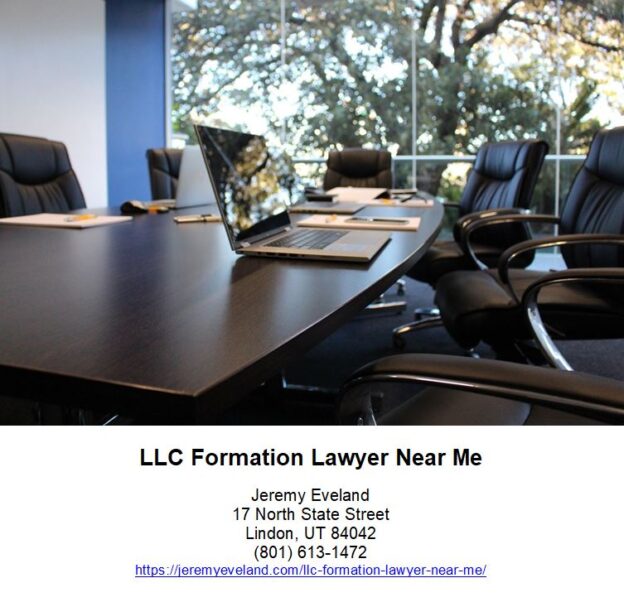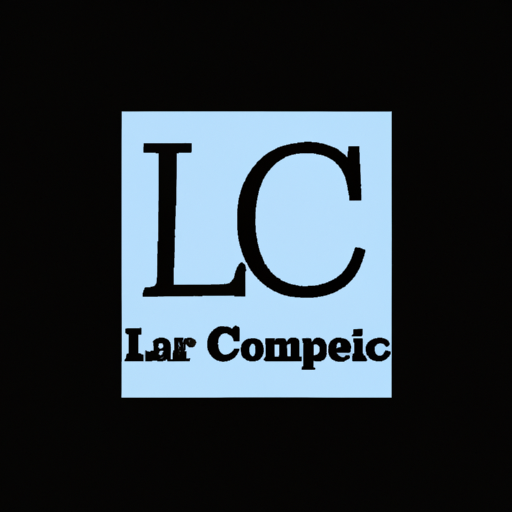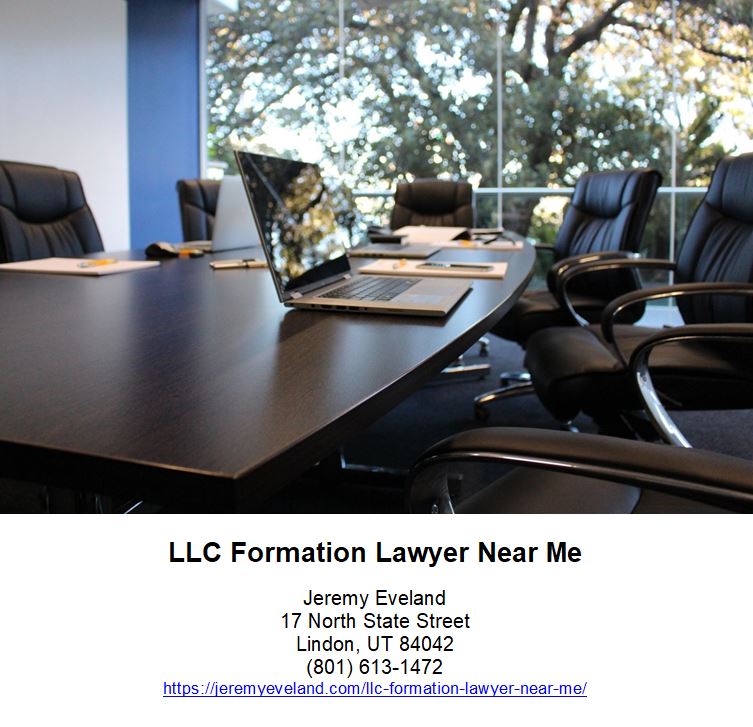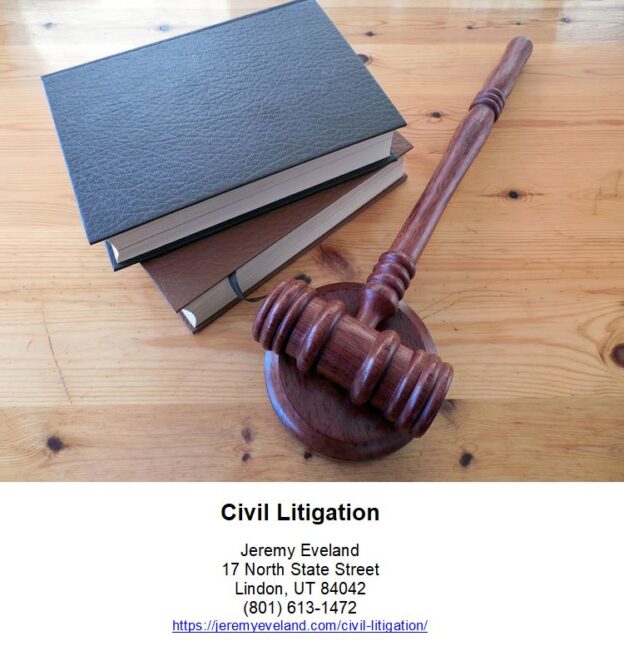Choose a Name for Your LLC
When starting a new business, one of the first and most important steps is to choose a name for your Limited Liability Company, or LLC. Your business name is not only a way to identify and distinguish it from other businesses, but it also represents your brand and can have a significant impact on your success.
Here are some tips to help you choose a great name for your LLC:
1. Keep it simple and memorable: Your business name should be easy to pronounce, spell, and remember. Avoid using difficult words or phrases that people may have trouble remembering or spelling correctly.
2. Make it descriptive: Your business name should give potential customers an idea of what you do or the products/services you offer. For example, if you’re starting a bakery, a name like “Sweet Treats Bakery” would be more descriptive than just “XYZ LLC.”
3. Check availability: Before settling on a name, make sure it’s available for use. You can check the availability of a business name by searching state and federal databases or consulting with a lawyer.
4. Consider domain availability: In today’s digital age, having a website is crucial for any business. Make sure the domain name for your business is available or consider purchasing it from the current owner.
5. Think about branding: Your business name should be unique and reflect your brand. Consider incorporating your values, mission, or personality into your business name to differentiate yourself from competitors.
6. Be mindful of legal issues: Make sure your business name doesn’t infringe on any trademarks or copyrights. Consult with a lawyer to ensure your chosen name is legally sound.
Choosing a name for your LLC can be exciting, but it’s important to take the time to carefully consider all the factors that could impact your business’s success. A great name can help set the stage for a successful venture, so make sure you choose wisely.
Choose a name for your LLC
The first step in forming an LLC is to choose a name for your business that is unique and not already used by another company in Utah. You can check the availability of your desired name on the Utah Division of Corporations and Commercial Code website. If your chosen name is available, you can reserve it for 120 days by filing a Name Reservation Request form and paying a fee.
Appoint a Registered Agent
When forming a business, one of the most important decisions you’ll make is choosing a registered agent. A registered agent is a designated person or entity that receives legal and business documents on behalf of your company. They act as a point of contact between your business and the state government.
Here are some reasons why appointing a registered agent is crucial for your business:
1. Legal compliance: Most states require businesses to have a registered agent in order to operate legally. Failure to appoint a registered agent can result in fines, legal penalties, and even the dissolution of your business.
2. Privacy protection: When you appoint a registered agent, their address and contact information are listed on public records instead of yours. This helps protect your privacy and prevents unwanted solicitations or visitors from showing up at your business address.
3. Business continuity: Your registered agent is responsible for receiving time-sensitive legal and business documents. If you’re not available to receive them, it could result in missed deadlines, lost opportunities, or legal troubles. Having a reliable registered agent ensures that your business operations continue uninterrupted.
4. Professional representation: Your registered agent serves as the official point of contact between your business and the state government. Having a professional registered agent can enhance your credibility and reputation among customers, vendors, and partners.
5. Flexibility: If you move your business address or change your contact information, you’ll need to update your registered agent’s information with the state. This means that if you have a registered agent, you can change your business location without worrying about changing the address on all of your legal documents.
When choosing a registered agent, consider factors such as their availability, reliability, experience, and fees. You may choose to appoint yourself, a trusted employee, a lawyer, or hire a third-party registered agent service. Whichever option you choose, make sure they meet the legal requirements and are a good fit for your business needs.
Appointing a registered agent is a critical step in forming a new business. By selecting a reliable and professional registered agent, you can protect your privacy, ensure legal compliance, and maintain business continuity.
Appoint a registered agent
A registered agent is a person or a company that has been designated to receive legal documents on behalf of your LLC. In Utah, a registered agent must have a physical address in the state and be available during regular business hours to receive legal notices. You can appoint yourself as the registered agent for your LLC, or you can hire a professional registered agent service. If you choose to hire a service, make sure to research different providers and compare their prices and services.
File Articles of Organization
In order to form a limited liability company (LLC), you must file articles of organization with the state in which you plan to operate your business. This document, also known as a certificate of formation or articles of incorporation, establishes your LLC as a legal entity and outlines its structure and operation.
Here are the key steps to filing articles of organization for your LLC:
1. Choose a name: The first step in forming an LLC is selecting a name that is available and complies with state regulations. Your LLC name must be unique and not already in use by another business entity. You will also need to ensure that your chosen name meets any specific naming requirements set by your state.
2. Select a registered agent: As discussed in Chapter 2, you will need to appoint a registered agent to receive legal and business documents on behalf of your LLC.
3. Prepare your articles of organization: This document typically includes basic information about your LLC such as its name, purpose, duration, management structure, and registered agent. You may also need to include additional details such as the names and addresses of the LLC members, if applicable. Many states provide a template or form to complete for your articles of organization.
4. File your articles of organization: Once you have completed your articles of organization, you will need to submit them to the appropriate state agency along with any required filing fees. Most states allow you to file online, although some require paper filings.
5. Obtain necessary licenses and permits: Depending on the nature of your business, you may need to obtain additional licenses or permits from your state or local government before you can begin operating.
6. Create an operating agreement: While not required by all states, it is highly recommended that you create an operating agreement for your LLC. This document outlines the roles and responsibilities of the LLC members, decision-making processes, voting rights, and other important details about how your business will operate.
Filing articles of organization is an essential step in forming your LLC. By following the steps above and ensuring that you comply with all state regulations, you can establish your LLC as a legal entity and begin operating your new business. Remember to consult with a lawyer or other qualified professional if you have any questions about the process or requirements for forming an LLC in your state.
File Articles of Organization
To form an LLC in Utah, you need to file Articles of Organization with the Utah Division of Corporations and Commercial Code. This form requires basic information about your LLC, such as its name, principal address, and the name and address of the registered agent. You can file the form online or by mail, along with a filing fee. After filing, your LLC will be officially recognized by the state.
Understanding Operating Agreements for Business Formation
When starting a business, it is essential to have a clear understanding of the legal structure and operations of the company. One crucial document that every business owner must create is an operating agreement. An operating agreement is a legal document that outlines how a limited liability company (LLC) will operate.
An operating agreement defines the roles and responsibilities of the members, how the company will be managed, and how profits and losses will be distributed. It also provides a mechanism for dispute resolution and specifies the procedures for adding or removing members.
In this chapter, we will dive deeper into the specifics of operating agreements, including their purpose, key components, and benefits.
What is an Operating Agreement, and Why is it Important?
An operating agreement is a written contract between the members of an LLC that establishes the rules and regulations governing the company’s internal affairs. It is not legally required in all states, but having one is highly recommended. The main purpose of an operating agreement is to ensure that there is a clear understanding among the members about how the business operates and how decisions are made.
Operating agreements are crucial for several reasons. First, they help protect the members’ limited liability status by ensuring that the business is treated as a separate entity from its owners. Second, they provide a framework for decision-making and conflict resolution, which minimizes disputes among members. Finally, they serve as a useful reference point for future decisions and can be amended as needed.
Key Components of an Operating Agreement
The following are some of the most critical components of an operating agreement:
1. Name and Purpose of the Company – This section should outline the name of the LLC and its primary purpose.
2. Members – This section should include the names and contact information of all members, along with their percentage of ownership.
3. Capital Contributions – This section should specify each member’s initial investment in the company and their ongoing financial obligations.
4. Management and Decision-Making – This section should define how the company will be managed, including who is responsible for making key decisions.
5. Profits and Losses – This section should outline how profits and losses will be distributed among members.
6. Transfer of Ownership – This section should specify the process for transferring ownership or admitting new members.
7. Dissolution – This section should outline the process for dissolving the LLC.
Benefits of Having an Operating Agreement
Having a well-written operating agreement provides several benefits for LLC members, including:
1. Protection of Limited Liability Status – An operating agreement helps ensure that an LLC is treated as a separate legal entity from its owners, which protects the members’ limited liability status.
2. Flexibility – An operating agreement allows LLC members to customize the rules and regulations governing the company’s internal affairs to fit their specific needs.
3. Conflict Resolution – By outlining a clear mechanism for resolving disputes, an operating agreement can help prevent conflicts among LLC members.
4. Clarity – An operating agreement ensures that all members have a clear understanding of the roles and responsibilities of each member and the company’s overall operations.
Conclusion
An operating agreement is a crucial document that every LLC should have. It outlines the rules and regulations governing the company’s internal affairs, including management, decision-making, profits and losses, and transfer of ownership. Having a well-written operating agreement can help protect LLC members’ limited liability status, prevent conflicts, provide clarity, and allow for flexibility.
Create an Operating Agreement
Although not required by law, it is advisable to create an Operating Agreement for your LLC. This document outlines the structure and management of your business, as well as the rights and responsibilities of each member. It can help prevent disputes among members and provide clarity on important issues, such as ownership and decision-making. You can create an Operating Agreement yourself using a template or software, or you can hire an attorney to draft one for you.
Obtain Necessary Licenses and Permits for Your Business
Starting a new business requires careful planning and attention to detail. One critical aspect of starting a business is obtaining the necessary licenses and permits. Depending on your industry, location, and business activities, you may need to obtain several licenses and permits to legally operate your business.
In this chapter, we’ll explore the various licenses and permits that businesses may need, how to obtain them, and the consequences of operating without them.
Why Do You Need Licenses and Permits?
Licenses and permits are required by law to regulate certain business activities and ensure public safety. They also help protect consumers from fraud, unauthorized services, and poor quality products or services. Obtaining the necessary licenses and permits demonstrates that your business meets the minimum requirements to operate safely and legally.
Types of Licenses and Permits
The types of licenses and permits your business needs depend on the type of business you’re running and your location. Some of the most common ones include:
1. Business License – A general business license is required in many states and localities to operate a business.
2. Professional License – If your business provides professional services such as legal or medical services, you will need to obtain a professional license.
3. Occupational License – Some occupations require specialized licenses such as plumbers, electricians, and contractors.
4. Sales Tax Permit – If your business sells products or services, you will need to obtain a sales tax permit to collect and remit sales tax to the state.
5. Health Department Permit – If your business prepares or serves food, you will need to obtain a health department permit.
6. Building Permit – If your business plans to build or remodel a space, you will need to obtain a building permit.
7. Environmental Permits – Some businesses may require environmental permits if they produce hazardous waste or emissions.
How to Obtain Licenses and Permits
The process of obtaining licenses and permits can vary depending on your location and the type of license or permit required. However, the following are some general steps you can take to obtain the necessary licenses and permits for your business:
1. Research – Identify the licenses and permits required for your business by contacting your local government agencies or visiting their websites.
2. Application – Complete the application forms for each license or permit required and submit them along with any necessary fees.
3. Inspections – Depending on the type of license or permit, you may be required to undergo inspections or audits to ensure compliance.
4. Renewal – Many licenses and permits must be renewed periodically, so make sure to keep track of renewal dates to avoid penalties.
Consequences of Operating Without Licenses and Permits
Operating a business without the necessary licenses and permits can result in serious consequences such as fines, penalties, legal action, and even closure of your business. It’s essential to obtain the required licenses and permits before starting your business to avoid legal and financial problems down the road.
Conclusion
Obtaining the necessary licenses and permits is a critical step when starting and operating a business. It demonstrates that your business meets the minimum requirements to operate safely and legally. The process of obtaining licenses and permits can vary depending on your location and industry, but it’s crucial to research and comply with all legal requirements to avoid consequences such as fines, penalties, and legal action.
Obtain necessary licenses and permits
Depending on your industry and location, you may need to obtain licenses and permits from local or state agencies. For example, if you plan to sell alcohol or operate a food truck in Utah, you will need specific licenses and permits. You can check with the Utah Department of Commerce to see if your business requires any special licenses or permits. Make sure to research all necessary licenses and permits early on in the process, as they can take time to obtain.
Obtain an EIN
When starting a business, there are many things to consider, and one of the most important is obtaining an Employer Identification Number (EIN). An EIN is a unique nine-digit number assigned by the IRS to identify your business for tax purposes. In this chapter, we will discuss what an EIN is, why you need one, how to obtain it, and other important information related to EINs.
What is an EIN?
An EIN is a nine-digit number that the IRS assigns to businesses for tax purposes. It is also known as a Federal Tax Identification Number (FTIN) or Employer Identification Number (EIN). The EIN is used to identify your business when filing various tax returns and forms.
Why do you need an EIN?
There are several reasons why you need an EIN for your business:
1. Hiring Employees: If you plan to hire employees, you are required to have an EIN. This allows the IRS to track your payroll taxes and other employment-related taxes.
2. Opening a Business Bank Account: Most banks require an EIN to open a business bank account. It helps the bank verify your business’s identity and keep track of your transactions.
3. Filing Tax Returns: You will need an EIN to file various tax returns, including income tax, employment tax, and excise tax returns.
4. Applying for Business Licenses: Some states and local governments may require you to have an EIN when applying for a business license.
5. Forming a Corporation or Partnership: If you are forming a corporation or partnership, you will need an EIN to file the necessary paperwork with the IRS.
How to obtain an EIN?
Obtaining an EIN is a relatively simple process, and there are several ways to apply:
1. Apply Online: The easiest way to apply for an EIN is online through the IRS website. The application process takes only a few minutes, and you will receive your EIN immediately upon completion.
2. Apply by Fax: You can also apply for an EIN by faxing Form SS-4 to the IRS. Once the IRS receives your application, they will assign an EIN and fax it back to you within four business days.
3. Apply by Mail: If you prefer to apply by mail, you can complete Form SS-4 and mail it to the IRS. This method can take up to four weeks to receive your EIN.
4. Apply by Phone: You can also apply for an EIN by calling the IRS Business & Specialty Tax Line at 800-829-4933 between 7:00 am – 7:00 pm local time.
Important information related to EINs:
1. Keep Your Information Up-to-Date: It is important to keep your business’s information up-to-date with the IRS. If any of your business’s information changes, like your business name or address, you will need to update your EIN with the IRS.
2. Changes in Ownership: If there are any changes in ownership of your business, like adding or removing partners, you will need to obtain a new EIN.
3. Use of Your EIN: You should only use your EIN for business-related activities. Do not use your EIN for personal activities, as this can result in penalties from the IRS.
4. Revocation of Your EIN: If you do not use your EIN for three consecutive years, the IRS may revoke your EIN. To prevent revocation, make sure to use your EIN when filing tax returns or other necessary forms.
Conclusion
Obtaining an EIN is an important step when starting a business. It is necessary for hiring employees, opening a business bank account, filing tax returns, applying for business licenses, and forming a corporation or partnership. The process of obtaining an EIN is relatively simple and can be done online, by fax, mail, or phone. Make sure to keep your business’s information up-to-date and use your EIN only for business-related activities to avoid penalties from the IRS.
Obtain an EIN
An Employer Identification Number (EIN) is a unique nine-digit number assigned by the IRS to identify your business for tax purposes. You will need an EIN if you plan to hire employees or open a business bank account. You can obtain an EIN by completing an online application on the IRS website. It’s a free process that takes only a few minutes to complete.
Follow Ongoing Compliance Requirements
In the world of business, compliance refers to adhering to laws, regulations, and standards that govern a company’s operations. Compliance is an essential aspect of conducting business and helps organizations maintain their reputation, avoid legal issues, and prevent financial loss. In this chapter, we will explore ongoing compliance requirements and how companies can ensure they are meeting them.
1. Understanding Ongoing Compliance Requirements
Ongoing compliance requirements refer to the laws, regulations, and standards that companies must adhere to on a continual basis. These requirements may originate from various sources such as government agencies, industry bodies, or other regulatory bodies. Some examples of ongoing compliance requirements include tax filings, employee record keeping, health and safety regulations, data privacy laws, and environmental regulations.
It is crucial for businesses to understand these ongoing compliance requirements and ensure that they are complying with them. Failure to comply with these requirements could result in fines, penalties, legal liability, and damage to the company’s reputation.
2. Establishing a Compliance Program
To ensure ongoing compliance, companies must establish a compliance program that is tailored to their specific needs and requirements. The program should be designed to identify, assess, and manage compliance risks, and ensure that ongoing compliance requirements are met.
The first step in establishing a compliance program is to conduct a risk assessment to identify potential compliance risks. This assessment should consider the company’s size, industry, location, and the nature of its operations. Once the risks have been identified, appropriate controls should be implemented to mitigate those risks.
The compliance program should also include policies and procedures that outline the company’s compliance obligations and how they will be met. These policies and procedures should be communicated to all employees and integrated into day-to-day business operations.
3. Conducting Regular Audits
Regular audits are an essential component of ensuring ongoing compliance. Audits can help identify areas where the company may not be complying with ongoing compliance requirements or where improvements can be made to the compliance program.
The audit process should include a review of policies and procedures, documentation, and testing of controls to ensure they are operating effectively. The results of the audit should be used to make any necessary improvements to the compliance program.
4. Staying Up-to-Date with Regulatory Changes
Regulatory requirements are continually evolving, and it is essential for companies to stay up-to-date with any changes that may affect their operations. Companies should have a process in place to monitor regulatory changes and assess how they may impact the company.
It is also important for companies to engage with regulators and industry bodies to stay informed about emerging issues and trends. This engagement can help companies anticipate changes and proactively adjust their compliance programs to ensure ongoing compliance.
5. Training Employees
Employees play a crucial role in ensuring ongoing compliance. They must be trained on the company’s compliance policies and procedures and understand their responsibilities for meeting ongoing compliance requirements.
Training should be ongoing and include updates on any changes to compliance requirements or the company’s compliance program. Employees should also be encouraged to report any potential compliance issues or concerns they may have.
6. Implementing Technology Solutions
Technology solutions can help streamline compliance processes and ensure ongoing compliance. These solutions can automate tasks such as data collection, monitoring, reporting, and analysis, reducing the risk of errors or omissions.
Companies should assess their technology needs and implement appropriate solutions that align with their compliance objectives. These solutions should be regularly reviewed to ensure they remain effective and meet the company’s ongoing compliance requirements.
Conclusion
Compliance is an essential aspect of doing business, and companies must ensure they meet ongoing compliance requirements. To achieve this, companies must establish a compliance program tailored to their specific needs, conduct regular audits, stay up-to-date with regulatory changes, train employees, and implement technology solutions. By prioritizing ongoing compliance, companies can maintain their reputation, avoid legal issues, and prevent financial loss.
Follow ongoing compliance requirements
After forming an LLC, you must follow ongoing compliance requirements, such as filing annual reports and maintaining accurate records. In Utah, LLCs are required to file an Annual Report with the Division of Corporations and Commercial Code each year and pay a fee. You should also keep detailed records of all financial transactions and important business decisions. It’s important to stay up-to-date on these requirements to keep your LLC in good standing and avoid penalties or fines.
Areas We Serve
We serve individuals and businesses in the following locations:
Salt Lake City Utah
West Valley City Utah
Provo Utah
West Jordan Utah
Orem Utah
Sandy Utah
Ogden Utah
St. George Utah
Layton Utah
South Jordan Utah
Lehi Utah
Millcreek Utah
Taylorsville Utah
Logan Utah
Murray Utah
Draper Utah
Bountiful Utah
Riverton Utah
Herriman Utah
Spanish Fork Utah
Roy Utah
Pleasant Grove Utah
Kearns Utah
Tooele Utah
Cottonwood Heights Utah
Midvale Utah
Springville Utah
Eagle Mountain Utah
Cedar City Utah
Kaysville Utah
Clearfield Utah
Holladay Utah
American Fork Utah
Syracuse Utah
Saratoga Springs Utah
Magna Utah
Washington Utah
South Salt Lake Utah
Farmington Utah
Clinton Utah
North Salt Lake Utah
Payson Utah
North Ogden Utah
Brigham City Utah
Highland Utah
Centerville Utah
Hurricane Utah
South Ogden Utah
Heber Utah
West Haven Utah
Bluffdale Utah
Santaquin Utah
Smithfield Utah
Woods Cross Utah
Grantsville Utah
Lindon Utah
North Logan Utah
West Point Utah
Vernal Utah
Alpine Utah
Cedar Hills Utah
Pleasant View Utah
Mapleton Utah
Stansbury Par Utah
Washington Terrace Utah
Riverdale Utah
Hooper Utah
Tremonton Utah
Ivins Utah
Park City Utah
Price Utah
Hyrum Utah
Summit Park Utah
Salem Utah
Richfield Utah
Santa Clara Utah
Providence Utah
South Weber Utah
Vineyard Utah
Ephraim Utah
Roosevelt Utah
Farr West Utah
Plain City Utah
Nibley Utah
Enoch Utah
Harrisville Utah
Snyderville Utah
Fruit Heights Utah
Nephi Utah
White City Utah
West Bountiful Utah
Sunset Utah
Moab Utah
Midway Utah
Perry Utah
Kanab Utah
Hyde Park Utah
Silver Summit Utah
La Verkin Utah
Morgan Utah
How to Form an LLC in Utah Consultation
When you need help with How to Form an LLC in Utah call Jeremy D. Eveland, MBA, JD (801) 613-1472 for a consultation.
Jeremy Eveland
17 North State Street
Lindon UT 84042
(801) 613-1472
Related Posts
Does Starting My Own Business Mean I Get A Corporation Automatically?
Impact of Environmental Regulations on Business Law Compliance
Business Lawyer South Jordan Utah
Business Lawyer Millcreek Utah
Business Lawyer Taylorsville Utah
How Artificial Intelligence is Shaping the Future of Business Law
Estate Planning is Crucial for People of All Income Levels
Navigating Legal Challenges in Business Succession Planning
Business Lawyer Bountiful Utah
How To Structure A Merger Or Acquisition In Utah
How To Hire Employees Legally in Utah
10 Tips for Negotiating Lease Agreements
Business Lawyer Spanish Fork Utah
How To Start A Non-Profit In Utah
What are the Trademark Laws in Utah



















